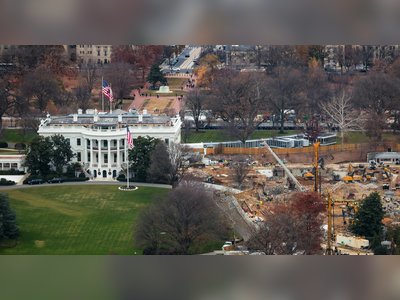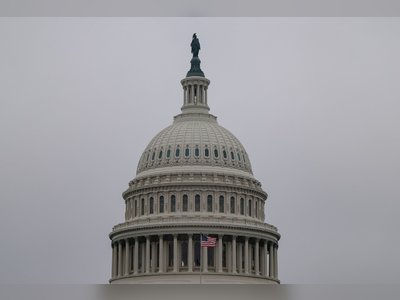Cyclone Chido Unleashes Havoc in South-East Africa: Unprecedented Toll Looms Over Mayotte
Catastrophic impact in Mozambique and Malawi, while uncertainty engulfs French territory Mayotte amid fears of massive casualties.
Cyclone Chido has carved a path of devastation across south-east Africa, with confirmed fatalities rising to 45 in Mozambique and 13 in Malawi.
The cyclone’s impact has been particularly catastrophic for the French territory of Mayotte, where officials fear hundreds, possibly thousands, may have perished.
As of now, a confirmed 22 deaths and over 1,500 injuries, including 200 critical cases, paint a grim picture of destruction on the island, intensifying concerns over the true scale of the disaster.
Acting Interior Minister Bruno Retailleau, speaking on BFMTV, admitted the impossibility of providing an accurate death toll, acknowledging a looming heavy toll.
Chido, powered by climate change-induced intensification, unleashed winds of up to 140 mph across Mayotte before ravaging parts of northern Mozambique, which is already grappling with an Islamist insurgency, and Malawi.
Mozambique's National Institute of Risk and Disaster Management reports nearly 500 injuries and the obliteration of 24,000 homes, exacerbating an ongoing hunger crisis caused by a severe drought in the region.
Fears are heightened in Mayotte, a French administrative territory burdened by an official population of 320,000 alongside an estimated 200,000 undocumented migrants primarily from Comoros.
The cyclone exposed underlying vulnerabilities, flattening densely populated areas composed of makeshift tin-roofed structures.
In the wake of the destruction, the region’s essential water system is operating at merely half its capacity, with dire quality concerns.
France responded by dispatching 23 tons of water to the island, while a temporary field hospital is expected to become operational soon, replacing local medical facilities incapacitated by the cyclone.
French President Emmanuel Macron plans to visit Mayotte imminently, aiming to survey the damage firsthand—particularly a decimated neighborhood and a malfunctioning hospital—and offer support.
The president acknowledged, “Our compatriots are living through the worst just a few thousand kilometres away.”
However, political tensions simmer as Dr. Retailleau, infamous for his anti-immigration stance, reignited the debate by underscoring migration’s impact on rebuilding efforts.
His absence from heavily damaged sites during Monday's visit provoked widespread anger among the island’s residents.
Zaïna Assani from Petite-Terre expressed the prevalent discontent in a call to her daughter, exclaiming her frustration.
As the region endeavours to recover from this natural disaster, the ordeal has underscored existing socio-economic challenges while thrusting Mayotte and other severely affected areas into the spotlight.
In the face of uncertainty, the pressing need for international support and comprehensive rebuilding plans remains paramount.
The cyclone’s impact has been particularly catastrophic for the French territory of Mayotte, where officials fear hundreds, possibly thousands, may have perished.
As of now, a confirmed 22 deaths and over 1,500 injuries, including 200 critical cases, paint a grim picture of destruction on the island, intensifying concerns over the true scale of the disaster.
Acting Interior Minister Bruno Retailleau, speaking on BFMTV, admitted the impossibility of providing an accurate death toll, acknowledging a looming heavy toll.
Chido, powered by climate change-induced intensification, unleashed winds of up to 140 mph across Mayotte before ravaging parts of northern Mozambique, which is already grappling with an Islamist insurgency, and Malawi.
Mozambique's National Institute of Risk and Disaster Management reports nearly 500 injuries and the obliteration of 24,000 homes, exacerbating an ongoing hunger crisis caused by a severe drought in the region.
Fears are heightened in Mayotte, a French administrative territory burdened by an official population of 320,000 alongside an estimated 200,000 undocumented migrants primarily from Comoros.
The cyclone exposed underlying vulnerabilities, flattening densely populated areas composed of makeshift tin-roofed structures.
In the wake of the destruction, the region’s essential water system is operating at merely half its capacity, with dire quality concerns.
France responded by dispatching 23 tons of water to the island, while a temporary field hospital is expected to become operational soon, replacing local medical facilities incapacitated by the cyclone.
French President Emmanuel Macron plans to visit Mayotte imminently, aiming to survey the damage firsthand—particularly a decimated neighborhood and a malfunctioning hospital—and offer support.
The president acknowledged, “Our compatriots are living through the worst just a few thousand kilometres away.”
However, political tensions simmer as Dr. Retailleau, infamous for his anti-immigration stance, reignited the debate by underscoring migration’s impact on rebuilding efforts.
His absence from heavily damaged sites during Monday's visit provoked widespread anger among the island’s residents.
Zaïna Assani from Petite-Terre expressed the prevalent discontent in a call to her daughter, exclaiming her frustration.
As the region endeavours to recover from this natural disaster, the ordeal has underscored existing socio-economic challenges while thrusting Mayotte and other severely affected areas into the spotlight.
In the face of uncertainty, the pressing need for international support and comprehensive rebuilding plans remains paramount.












